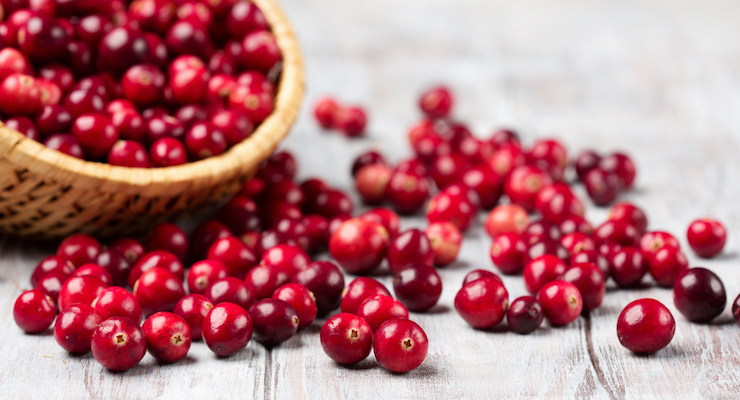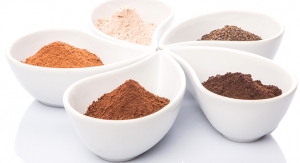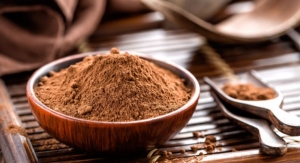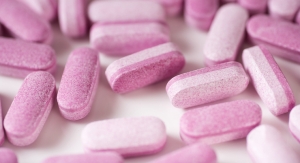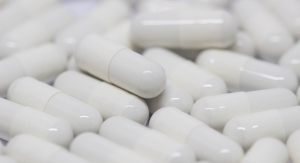07.22.20
What was once a longstanding home remedy for urinary tract infections is now being considered for a qualified health claim by the FDA, following mixed findings from a number of clinical trials.
The U.S. Food and Drug Adminsitration (FDA) recently announced in a letter of enforcement discretion that it does not intend to object to the use of certain health claims regarding certain cranberry products and a risk of recurrent urinary tract infections in healthy women.
The FDA responded to a health claim petition submitted on behalf of Ocean Spray Cranberries, Inc.
The petition requested that the FDA authorize a health claim related to evidence that consumption of cranberry products may reduce the risk of recurrent UTIs in healthy women. After a review of the petition, the agency determined that the scientific evidence did not meet the “significant scientific agreement” standard required for an authorized claim.
The agency concluded that, for cranberry juice’s ability to reduce recurrent UTIs, the evidence was “limited and inconsistent,” and “credible.” For cranberry dietary supplements, the agency described the evidence as “limited” and “credible.”
FDA intends to exercise discretion, and does not intend to object ot the use of health claims regarding UTI reductions, for cranberry juice beverages containing at least 27% cranberry juice, and cranberry dietary supplements containing at least 500 mg of cranberry fruit powder. The claims will not be permitted for conventional foods or food products made from or containing cranberries, such as dried cranberries or cranberry sauce.
For cranberry juice beverages, the claims to which FDA will express discretion include:
- “Limited and inconsistent scientific evidence shows that by consuming one serving (8 oz) each day of a cranberry juice beverage, healthy women who have had a urinary tract infection (UTI) may reduce their risk of recurrent UTI.
- “Consuming one serving (8 oz) each day of a cranberry juice beverage may help reduce the risk of recurrent urinary tract infection (UTI) in healthy women. FDA has concluded that the scientific evidence supporting this claim is limited and inconsistent.”
- Consuming one serving (8 oz) each day of [this identified cranberry juice beverage] may help reduce the risk fo recurrent urinary tract infection (UTI) in healthy women. FDA has concluded that the scientific evidence supporting this claim is limited and inconsistent.”
For cranberry dietary supplements, FDA said it would express discretion on the following claims:
- “Limited scientific evidence shows that by consuming 500 mg each day of cranberry dietary supplement, healthy women who have had a urinary tract infection (UTI) may reduce their risk of recurrent UTI.”
- “Consuming 500 mg each day of cranberry dietary supplement may help reduce the risk of recurrent urinary tract infection (UTI) in healthy women. FDA has concluded that there is limited scientific evidence supporting this claim.”
- “Consuming 500 mg [X capsules/tablets/soft gels] each day of [this identified cranberry dietary supplement] may help reduce the risk of recurrent urinary tract infection (UTI) in healthy women. FDA has concluded that there is limited scientific evidence supporting this claim.”
The U.S. Food and Drug Adminsitration (FDA) recently announced in a letter of enforcement discretion that it does not intend to object to the use of certain health claims regarding certain cranberry products and a risk of recurrent urinary tract infections in healthy women.
The FDA responded to a health claim petition submitted on behalf of Ocean Spray Cranberries, Inc.
The petition requested that the FDA authorize a health claim related to evidence that consumption of cranberry products may reduce the risk of recurrent UTIs in healthy women. After a review of the petition, the agency determined that the scientific evidence did not meet the “significant scientific agreement” standard required for an authorized claim.
The agency concluded that, for cranberry juice’s ability to reduce recurrent UTIs, the evidence was “limited and inconsistent,” and “credible.” For cranberry dietary supplements, the agency described the evidence as “limited” and “credible.”
FDA intends to exercise discretion, and does not intend to object ot the use of health claims regarding UTI reductions, for cranberry juice beverages containing at least 27% cranberry juice, and cranberry dietary supplements containing at least 500 mg of cranberry fruit powder. The claims will not be permitted for conventional foods or food products made from or containing cranberries, such as dried cranberries or cranberry sauce.
For cranberry juice beverages, the claims to which FDA will express discretion include:
- “Limited and inconsistent scientific evidence shows that by consuming one serving (8 oz) each day of a cranberry juice beverage, healthy women who have had a urinary tract infection (UTI) may reduce their risk of recurrent UTI.
- “Consuming one serving (8 oz) each day of a cranberry juice beverage may help reduce the risk of recurrent urinary tract infection (UTI) in healthy women. FDA has concluded that the scientific evidence supporting this claim is limited and inconsistent.”
- Consuming one serving (8 oz) each day of [this identified cranberry juice beverage] may help reduce the risk fo recurrent urinary tract infection (UTI) in healthy women. FDA has concluded that the scientific evidence supporting this claim is limited and inconsistent.”
For cranberry dietary supplements, FDA said it would express discretion on the following claims:
- “Limited scientific evidence shows that by consuming 500 mg each day of cranberry dietary supplement, healthy women who have had a urinary tract infection (UTI) may reduce their risk of recurrent UTI.”
- “Consuming 500 mg each day of cranberry dietary supplement may help reduce the risk of recurrent urinary tract infection (UTI) in healthy women. FDA has concluded that there is limited scientific evidence supporting this claim.”
- “Consuming 500 mg [X capsules/tablets/soft gels] each day of [this identified cranberry dietary supplement] may help reduce the risk of recurrent urinary tract infection (UTI) in healthy women. FDA has concluded that there is limited scientific evidence supporting this claim.”

